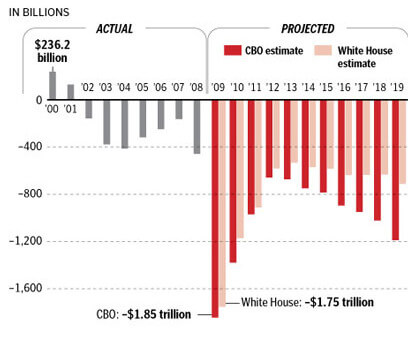[Posted by Karl]
After the Weekly Standard’s Jay Cost upped his prediction to a GOP gain of 61 House seats last week, Ace posed a series of questions to him on the Twitter:
T or F, @jaycost : When predicting, you (and other analysts) feel much more comfortable getting it wrong on the low side than high side.
Real Q @jaycost If you have a choice between guessing low or guessing high, by same deviation, it feels safer to be on low side, right?
I ask, @jaycost , because ppl like Charlie Cook keep making projections before immediately saying “but it’ll be much higher.”
I don’t think Jay answered. (Indeed, I think Jay has canceled his Twitter account.) Although I cannot speak for Jay, I thought they were good questions, especially because they are a good springboard for looking at the bar of expectations people are setting for Election Day.
In reverse order, Charlie Cook is rather notoriously cautious in his projections, primarily based on the perceived power of incumbency. As the Cook Political Report put it in its October 8, 2010 update:
Longtime readers will observe that while we rarely rate unindicted incumbents worse than a Toss Up to win reelection, today we are moving 13 incumbents, 12 Democrats and one Republican, into the opposite party’s column to reflect their underdog status. It’s not that these endangered members’ prospects have suddenly taken a turn for the worse, or even deteriorated gradually over the last several months. Most of these members have trailed all year, and it’s simply exceedingly rare to see a candidate in their position in October come back to win reelection, especially now that early voting will be underway in many states very soon.
We have historically treated the Toss Up column for incumbents as the political equivalent of the intensive care unit, and haven’t commonly used gradations of danger worse than Toss Up. But we have seen some incumbents that have fallen far enough behind and remain behind for so long that we could no longer justify referring to their races as Toss Ups. Overall, 51 House Democrats have trailed their GOP challengers in at least one public or private poll taken this year, a higher number than we have ever seen before. At this point in 2006, fewer than 20 House Republicans trailed their Democratic opponents…
Cook underestimated the 1994 GOP wave, but his overall record is pretty good, which is probably why he usually stays cautious, and why the ratings he has already made frighten the Dems.
Beyond Cook, the conventional wisdom on the wave may not be as groupthinky as we may think. For example, Jay Cost’s October 15th roundup of prognostications ranged from Stuart Rothenberg’s 37-45 seats (“with considerably larger gains in excess of 45 seats quite possible”) to Alan Abramowitz’s model predicting roughly 68 seats and Steve Lombardo (President and CEO of the Lombardo Consulting Group) predicting a GOP gain of 60-70 House seats. Since then, most of the lower estimates have been revised upwards, as time runs out for any serious changes in the dynamics of the elections. In fact, Jay Cost revised his own estimate from 57 seats to the aforementioned 61 (where he remains today). (Note: Patrick Ishmael slogs through a lot of micro-data and reaches 62-65 new GOP seats.)
Jay was fairly transparent is explaining how he arrived at last week’s estimate. Essentially, he assumed Dem and GOP turnout akin to 2004, but allocated the Independent voters in the proportions we have seen overall in recent public opinion polling. Those assumptions would give the Dems roughly 46% of the two-party vote. What Jay did not say is that Gallup’s generic ballot model suggests that 46% of the two-party vote would project to somewhere between 186-208 seats, with a “best” prediction of 197 seats. That “best” prediction would give the GOP 238 seats, unsurprisingly close to Jay’s estimate of 240 GOP seats. Jay’s estimate is also in the ballpark with the aforemetnioned Abramowitz model, which relies in part on the Gallup likely voter generic ballot question.
Jay’s Oct. 22nd projection is small-c conservative only to the degree that he is assuming that Dems fix most — but not all — of their enthusiasm gap. It is the equivalent of the GOP being +10 on the final pre-election Gallup generic ballot question, when it could be as high as +14 now. But even under the Gallup model and the Abramowitz model, a GOP +14 generic ballot would suggest ~253 GOP seats, only a baker’s dozen more than Jay’s estimate (and almost as many seats as the Dems held in 2008 after two very good cycles for them). Unless Democrats’ enthusiasm collapses, that seems like the most realistic best-case scenario.
If there is some small-c conservatism in not projecting the best-case scenario, I would note — as Jay did — that if the GOP wins 54% of the two-party vote, it will likely exceed its 1994 wave (230 seats) and mark the party’s best showing since 1946. As much as I may hope for the best-case scenario, it would be not only unfair, but also counter-productive to set the bar of expectations there.
—
Update: The Cook Political Report’s pre-election House outlook is now a Democratic net loss of 48 to 60 seats, with higher losses possible.
–Karl



